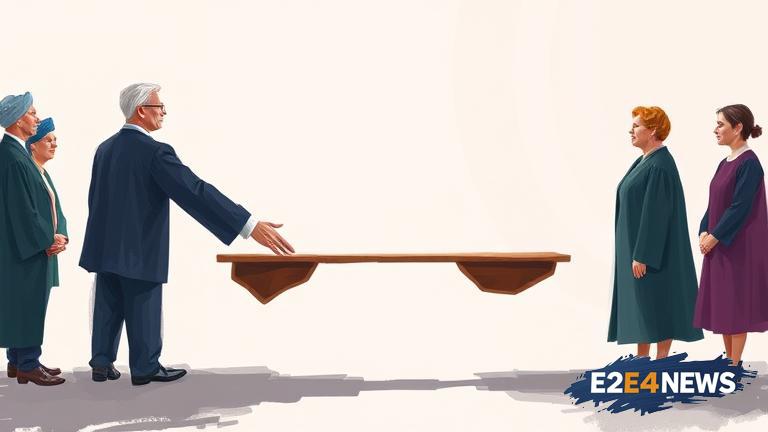The topic of politics and academic honours has sparked intense debate in recent years, with many questioning the role of politics in the awarding of honours. In Ghana, the issue has been particularly contentious, with some arguing that political considerations have undue influence on the selection process. However, others contend that politics has always played a role in the awarding of honours, and that it is naive to think otherwise. The issue is further complicated by the fact that many academic institutions are heavily reliant on government funding, which can create a power imbalance. Despite these challenges, many institutions are working to maintain the integrity of the honours system, and to ensure that awards are based on merit rather than political connections. One of the key concerns is that the politicization of academic honours can undermine the credibility of institutions, and damage the reputation of recipients. Furthermore, it can also create a culture of cronyism, where individuals are rewarded for their political connections rather than their academic achievements. In addition, the emphasis on politics can distract from the true purpose of academic honours, which is to recognize and reward outstanding academic achievement. The situation is not unique to Ghana, as many countries around the world grapple with similar issues. In fact, the problem is often more pronounced in countries with a strong tradition of patronage and clientelism. To address these concerns, many institutions are implementing reforms aimed at increasing transparency and accountability in the selection process. This can include the use of independent review panels, and the establishment of clear criteria for the awarding of honours. Moreover, there is a growing recognition of the need to promote a culture of meritocracy, where awards are based on individual achievement rather than political connections. Ultimately, the key to resolving the issue is to strike a balance between the need to recognize outstanding achievement, and the need to maintain the integrity of the honours system. This requires a commitment to transparency, accountability, and fairness, as well as a willingness to challenge entrenched interests and power structures. By working together, institutions, governments, and individuals can help to promote a culture of excellence, and ensure that academic honours are awarded on the basis of merit rather than politics. The issue is complex, and there are no easy solutions, but by engaging in open and honest dialogue, we can work towards creating a more just and equitable system. In conclusion, the relationship between politics and academic honours is multifaceted, and requires a nuanced and thoughtful approach. While there are no easy answers, it is clear that the integrity of the honours system must be maintained, and that awards must be based on merit rather than political connections. By promoting a culture of transparency, accountability, and fairness, we can help to ensure that academic honours are awarded in a way that is consistent with the values of excellence and meritocracy. The future of academic honours depends on our ability to strike a balance between the need to recognize outstanding achievement, and the need to maintain the integrity of the system. It is a challenge that requires the collective efforts of institutions, governments, and individuals, but one that is essential to promoting a culture of excellence and meritocracy.
